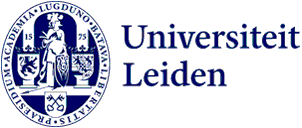
Rutger Leukfeldt appointed Chair in Governing Cybercrime shared by two faculties: 'You have to do this together'
Rutger Leukfeldt has been appointed endowed Professor of Governing Cybercrime at the faculties of Governance and Global Affairs (FGGA) and Leiden Law School. Leukfeldt: 'It’s great that the two faculties are joining forces at a time when we’re faced with enormous challenges in the field of cybercrime.'

Rutger Leukfeldt has been conducting research on how digitalisation affects crime for several years now. How do criminals commit their crimes? What does that crime look like? How does someone become a victim? From this follows the question of how best to tackle this type of crime. 'There’re so many scientific and societal challenges in this field. It’s an extremely important topic and I’m very happy to have the opportunity to be able to connect the dots between the different sides of these issues at Leiden University.'
Leukfeldt's appointment as endowed professor of Governing Cybercrime at FGGA and Leiden Law School is for 0.2 FTE and is funded by the NSCR: the Netherlands Study Centre for Crime and Law Enforcement.
An investment in an important issue
Leukfeldt likes to seek connections between different disciplines. 'For example, I always want to look empirically at how cybercrime works and link that to research into the governance of cybercrime: how can we best tackle it? A special combination to look at this from both the criminology and the governance angle. The fact that this chair now exists indicates how important Leiden University and the NSCR believe this subject is and that they’re willing to invest in it.’
'You see that a lot of research is now conducted from a very fundamental or very practice-oriented perspective. By making an effort to combine those, you get high-quality fundamental scientific research that has a tangible impact on society'.
Leukfeldt is also a lecturer in Cybercrime & Cybersecurity at the Haagse Hoogeschool, besides his work as a researcher at the NSCR in the field of cybercrime and cybersecurity (the non-technical side). With this chair, the criminologist hopes to start connecting and strengthening the various organisations. You see that a lot of research is now conducted from a very fundamental or very practice-oriented perspective. By making an effort to combine those, you get high-quality fundamental scientific research that has a tangible impact on society'.
'Digitalisation has completely changed crucial criminological theories,' says Leukfeldt. 'Offender and victim do not necessarily meet in time and space anymore. And a fraudster can create thousands of victims at once with only a push of a button. Or by hacking a database, which simply could not be done in the pre-digital era.
Many important questions remain unanswered. For instance, are we dealing with a new type of offender? And if so, what does it mean for the tools we now have to keep people on the straight and narrow?
By looking from the criminology and the governance side, I’m hoping for a reinforcing effect. That we’ll be able to do more. I’m really hoping we’ll be able to expand this further in the future. In the cyber field, you can’t do this in your own discipline alone, you need each other. You really have to do this together.'
Leiden and The Hague have so much potential
The choice for Leiden was an easy one. Leukfeldt: 'Leiden University has enormous potential in this field. Several faculties are already - to a greater or lesser extent - working in this field and a new bachelor's degree in Cybersecurity and Cybercrime (BaCC) is being developed and will start in 2025. I see this appointment and this chair as an opportunity to take cybercrime education and research to the next level.'
Text: Margriet van der Zee
Translation: Marleen van Koetsveld
Header photo: Unsplash/Muha Ajan
